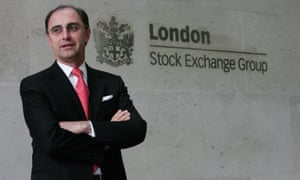
Dublin is emerging as the most popular destination for relocating City banks.
Photograph: Design Pics Inc / Rex Features
Banking
Dublin is streets ahead of EU rivals as City firms plan for Brexit relocation
Its shared language and links with London have made the Irish capital first choice for banks seeking new bases from which to trade in Europe
In boardrooms across London, bank executives are deciding where to move tens of thousands of jobs in the event of a hard Brexit. Rival European financial centres, including Paris, Frankfurt and Luxembourg, are vying for the business – but Dublin is emerging as the most popular destination.
Hundreds of banks, insurers, fund managers and other major City firms had until Friday to tell the Bank of England how they intend to cope in the event of a hard Brexit.
Accountants at EY last week said 59 out of the 222 biggest financial services companies in the UK have made public statements about moving staff from Britain to the EU because of Brexit. Dublin, which is still scarred by Ireland’s financial crisis, is the top destination with 19 firms mentioning a possible move to the Irish capital.
Jes Staley, the chief executive of Barclays, which already has significant operations in Ireland, flew there last week to meet taoiseach Leo Varadkar and discuss further expansion across the Irish Sea. “Barclays Bank Ireland, which has a banking licence and which we have operated for almost 40 years, provides a natural base and we are engaging with our regulators in discussions to extend its activities,” the bank said.
A week earlier, JP Morgan’s chairman and chief executive Jamie Dimon was also in Varadkar’s office discussing the American bank’s expansion in Dublin. The bank, which currently employs 500 staff in Ireland, has bought a new office building in Dublin’s docklands area that can accommodate up to 1,000 people. “Given the momentum of our local businesses, this new building gives us room to grow and some flexibility within the European Union,” Carin Bryans, JP Morgan’s boss in Ireland, has said.
Frankfurt appears to be the second most popular destination, with 18 mentions in EY’s research. Luxembourg, with a population of just 110,000, comes third with 11.
Paris, which last week promised bankers significant tax cuts as part of a major charm offensive by new French prime minister Manuel Valls, was ranked in fourth place.
Banks and other financial services companies are looking to move parts of their business to new continental homes because they are worried Brexit could mean they will lose their “EU passport”, a legal mechanism that permits them to do business in other EU countries from the UK. Xavier Rolet, the boss of the London Stock Exchange, has said that Brexit could lead to as many as 100,000 jobs moving out of London.
“The difference three months on from the triggering of article 50 is that we are seeing major financial brands put their contingency plans into action – over a quarter of the companies we track have suggested there will be potential changes to their London base as a result of Brexit,” said Omar Ali, EY’s UK financial services leader. “This process will only accelerate as firms finalise their submissions to the regulators on their Brexit plans.”
So what is it that makes Dublin, a city with a population of 1.4 million and a chronic housing shortage, no international schools and a stained history in banking so attractive?
Although Frankfurt has already secured the EU bases of Japanese banks Nomura and Daiwa, Dublin appears to be a favourite for many City companies because of its historic links with London and the common language.
“Dublin already has some of the back-office operations for some large investment banks and an asset management presence; it also has the benefit of being pretty close to London and of being English-speaking,” Ali, who compiled the EY report, said. “It’s very hard to tell how many people will actually move. However, it’s clear that EU operations will need to be proper functioning entities and not just letterboxes.”
Any boost to the financial services industry will be welcomed in a city still recovering from the banking crisis and property price crash a decade ago. The collapse of the economy went deeper than the UK, with house prices slashed by up to 70% and taxpayers left on the hook for toxic banking debt guaranteed by the state, which in turn was bailed out by the International Monetary Fund and the European Central Bank.
However, while the public is still nursing debts and negative equity, the IMF bailout seems a very distant memory in Ireland. The economy is on course to be the fastest growing in the eurozone for the fourth year in a row and there is a housing shortage for a growing population.
Depicting the Brexit crisis as “a tennis match between Dublin and Frankfurt trivialises it”, said Kieran Donoghue, head of international financial services at Ireland’s Industrial Development Authority, the semi-state body charged with winning foreign investment.
“Brexit is not of the industry’s making. Banks and financial services don’t have a choice but to respond to it and they are reaching out because customers want to know ‘will you be able to finance my manufacturing plant in Germany in two years’ time?’; ‘will you be able to provide working capital?’; ‘will the pensions services be the same?’,” he said. “People don’t want that relationship that they have had for years and years broken because of Brexit.”
Donoghue said that he believed that more than a dozen banks would ultimately make a partial move to Dublin from London, relocating or hiring anything from 10 to 500 staff apiece.
“It’s a beautiful city, with great real estate and an open business climate,” Dimon told existing JP Morgan employees in Dublin at a staff meeting. “I’m optimistic about our future growth here.”
Last week, US specialist insurer Beazley said it was bulking up its presence, in the city while others considering the move include investment bank Investec and Citigroup, which already has a major operation there. Citi is expected to announce later this month how it will handle Brexit.
“It is not that London is going to decamp en masse to Dublin or anywhere else, the industry is going to move to a more decentralised structure with hubs in several locations,” said Donoghue.

Ken Owens, Brexit partner at PwC, said he had between 20 and 30 clients who have said they were going to move to the Irish capital. “A lot of them will start quite small and move 10 to 15 senior managers and slowly expand,” he said.
Owens added that clients found the city attractive because “you don’t have to mess around with tax rulings”, allowing straightforward Brexit calculations. “The corporate rate is 12.5% and that’s what it stays at; that’s what you pay. Ireland is very transparent, unlike some other countries. The rate is competitive and that’s helping.”
Another big issue for firms doing the tour of Europe is employment law in Germany and bonus caps and pay restrictions in the Netherlands, according to Owens. As for Paris: “As a location? It’s not coming up.”
The Irish banking crisis was largely self-inflicted with over-lending by a handful of now-bust domestic banks and light regulation now replaced by “an awful lot of prudence and an awful lot of caution” by banks and regulators, Donoghue said.
The crash still casts a long shadow. The housing shortage is at crisis levels, with the most recent figures showing there were just 3,500 properties to let in the entire country and just 2,800 properties for sale in Dublin, according to Marian Finnegan, chief economist at estate agent Sherry Fitzgerald.
“This is a market in recovery and, if everyone arrived on one day, it would be a problem,” she said. “We do have a crisis in the residential sector.”
She estimated that there were only “a couple of hundred” high-end new homes available for incoming high-rollers, including some €5m-plus penthouses at Landsdowne Place, in the shadow of the Aviva rugby stadium.
The apartment block is emblematic of Ireland’s ability to move on from its past. It is being built on the site of two hotels in the city’s Ballsbridge area bought in the boom years by a now bankrupt builder for €400m and sold on by Ulster Bank to Chartered Land and the Abu Dhabi sovereign wealth fund for €170m.
In contrast to London, where prices continued to go up and up after the crash, prices in Dublin are still 30-35% off their peak. On the commercial front, the situation is different, with 335,000 square feet under construction, and just 27% pre-let and 11% reserved.
Tim Payne, head of people and change at accountancy firm KPMG, said picking another city to move to may be the easy part compared with the “tough sell” of convincing London staff, and their families, to move.
Indeed, HSBC is struggling even to convince enough of its staff to make the 120-mile move from London’s Docklands to the bank’s new British headquarters in Birmingham, despite offering rewards of up to £2,500.
Meanwhile, fears that Dublin would go down the ranks of European cities because of the lack of schools have been assuaged after Nord Anglia International announced it was opening a school in September 2018 and would offer the international baccalaureate curriculum. It has yet to start enrolling pupils but has already taken more than 400 enquiries.
JP Morgan’s Dimon has played down the idea of one location inside the EU benefiting from the fallout of Brexit but he warned that could change as 75% of the activity JP Morgan conducts in the UK was for EU companies.
“If the EU determines over time that it wants to move a lot more jobs out of London into the EU, it can simply dictate that,” he said.
“The regulators can dictate it, the politicians can dictate it.”